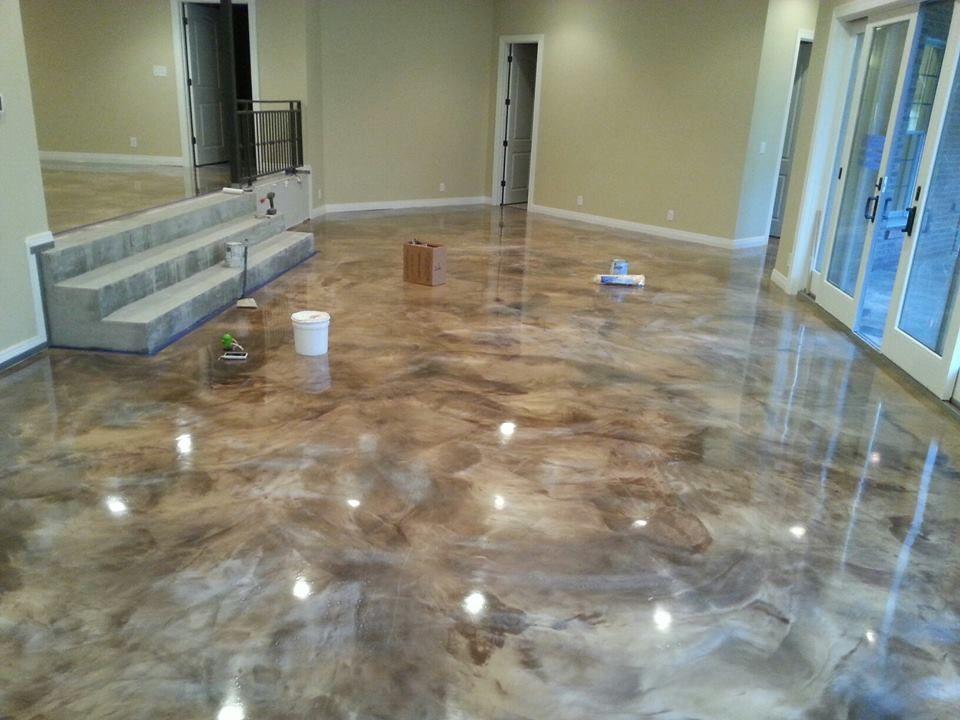In 2025, homeowners are rethinking every inch of their living spaces — and that includes the floors. While hardwood, tile, and carpet have long been staples in residential flooring, a new contender is making its way from industrial spaces to living rooms and garages alike: residential epoxy flooring. Durable, stylish, and surprisingly affordable, epoxy floors are transforming how people think about comfort and functionality in the home.
Whether you're remodeling your garage, upgrading your basement, or dreaming of a modern, low-maintenance kitchen floor, epoxy might be the perfect solution. Let’s dive into everything you need to know about residential epoxy flooring, from benefits and applications to installation and maintenance.
What is Residential Epoxy Flooring?
Epoxy flooring is a surface made from layers of epoxy resin applied to a floor base. Epoxy is a thermosetting polymer that, when mixed and cured, forms a rigid plastic material that is strong, resistant to degradation, and bonds well to most base layers — typically concrete.
In residential settings, epoxy flooring combines durability with aesthetics, providing a sleek, seamless finish that can mimic anything from granite and marble to terrazzo and metallic finishes.
Key Benefits of Residential Epoxy Flooring

1. Durability & Strength
Epoxy floors are exceptionally strong. They can withstand heavy foot traffic, dropped tools, pet scratches, and even vehicle weight — making them ideal for garages, basements, and utility rooms.
2. Easy Maintenance
Unlike grout or carpet, epoxy surfaces are non-porous and seamless. This means they resist stains, repel moisture, and are a breeze to clean. A quick sweep and mop are all you need to keep them shining.
3. Aesthetic Versatility
From glossy finishes and vibrant colors to metallic swirls and faux-stone textures, epoxy floors offer virtually limitless design options. Whether you’re going for modern minimalism or industrial chic, there’s an epoxy style for you.
4. Cost-Effective
Compared to high-end tiles or natural stone, epoxy is significantly more affordable — both in terms of materials and installation. Plus, its longevity means fewer replacements or repairs down the road.
5. Chemical and Water Resistance
Epoxy floors are highly resistant to household chemicals, oils, and water damage. This makes them perfect for kitchens, laundry rooms, and bathrooms.
6. Eco-Friendly Options
Today’s epoxy systems include low-VOC (volatile organic compounds) options that are safer for the environment and indoor air quality.
Best Places to Use Epoxy Flooring in the Home
- Garage: The most common use for residential epoxy flooring. Durable enough for vehicles, spill-resistant, and attractive.
- Basement: Waterproof and mold-resistant, perfect for below-ground living spaces.
- Kitchen: Hygienic and easy to clean, with plenty of stylish options.
- Bathroom: Slip-resistant epoxy formulations are available for wet areas.
- Laundry Room: Resistant to spills and wear from machines.
What to Expect During Installation
Installing epoxy flooring is a multi-step process and is typically best left to professionals, though DIY kits are available for smaller projects.
1. Surface Preparation
This is crucial. The concrete substrate must be clean, dry, and properly etched or sanded for adhesion.
2. Primer Application
A primer ensures better adhesion and reduces air bubbles.
3. Epoxy Application
Multiple layers of epoxy are poured and spread. This may include decorative flakes or pigments depending on the desired finish.
4. Topcoat Sealant
A UV-resistant topcoat adds extra protection and shine.
5. Curing Time
The floor must cure for 24–72 hours depending on the system used.
Maintenance Tips for Epoxy Flooring
- Sweep or vacuum regularly to remove dirt and grit.
- Clean with mild detergent and water — avoid harsh abrasives.
- Use protective pads under heavy furniture.
- Reapply topcoat every 5–7 years for a renewed finish.
Is Residential Epoxy Flooring Right for You?
If you want a floor that blends high-end design with unmatched durability, residential epoxy flooring is worth serious consideration. It’s an especially smart choice for homeowners who value functionality without sacrificing style.
Whether you're renovating a garage into a man cave or transforming a dated basement into a modern media room, epoxy floors could be the polished, practical solution you’ve been searching for.
Conclusion
In 2025, residential epoxy flooring is more than just a trend — it's a smart upgrade that delivers on performance, price, and personality. With a variety of finishes and colors, easy maintenance, and incredible durability, it’s no wonder more homeowners are making the switch.
Ready to transform your floors? Contact a local epoxy flooring specialist today to get started — your dream space is just a pour away.




Comments